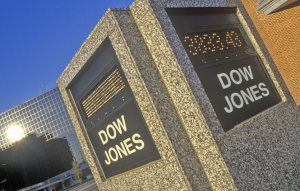
The Dow Index
The Dow is considered a symbol of either euphoria or despair for investors. But how much should you pin investing decisions on this fluctuating indicator of the country’s financial status? This summer the Dow hit a record high, for the first time in a year, which is considered a long time in that particular measure. The reasons, according to the gurus, included an economic slump in China and Britain’s vote to leave the European Union.
To put such things in their proper perspective, it might be well to understand the Dow Jones index and what it means to your personal finance efforts.
The index, initiated in May 1896, draws data from 30 big companies, which represent a broad selection of industries. On the list are large banks such as Goldman Sachs and JPMorgan Chase, industrial giants such as Caterpillar, Apple and Walt Disney Co. Of the original members, only General Electric remains.
To put this summer’s high into perspective, it didn’t represent any huge change for the better: just two-tenths of a percent above the previous high. In the six months before it hit the high of May 19, 2015, it hit a record 10 times.
Standard and Poor’s Index
Standard and Poor’s index, by contrast, has 500 members. The two indexes differ in how they value the stocks they track. Relatively small changes in just a few of the Dow stocks can make a difference.
The Dow is price-weighted, while the S&P is market-weighted. Member companies with the largest value on the stock market make the biggest impact on the index. Apple, the most valuable publicly traded company in the world at $531 billion, can move the index more than any other S&P member.
So, when the Dow goes up, what will it do to your funds? Probably very little unless the rise is significant. Don’t get too excited about the headline that says the “Dow is up” until you study more closely to see how much and why. And it’s the S&P average that means the most, since it has nearly 60 times more — $2.1 trillion compared with $36 billion – in its index.
Funds that are managed, which might be where your dollars fit, tend to track S&P more closely.
But for all its flaws, the Dow usually is right in line with the S&P. And the Dow tends to be more well recognized among investors. It offers a great at-a-glimpse of the market. As a gauge, it is safe to say then when the Dow is up, investors are up. When it’s down, they are down. It pays to pay attention.



